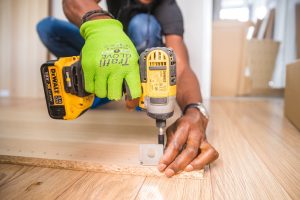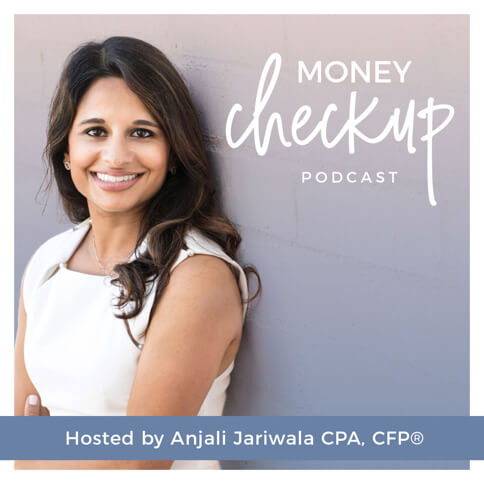Homes are the biggest investments most Americans make in their lifetimes. They’re also the places where we spend most of our time, raise our children, and host our family and friends. It’s so easy to fall in love with a home and spend more than you can afford without realizing what you’re doing.
It’s an understandable mistake! But it’s one that can be avoided by knowing what you can afford before you even begin your home search.
There are a lot of formulas out there to figure out how much house you can afford. Some conventional wisdom says your budget should be three times your annual income. Others suggest a debt-to-income ratio of 28 to 38 percent. There’s some truth to both of those suggestions, though neither are perfect.
When I’m working with clients, I like to look at a variety of factors to determine the home price that is right for them.
Things to know before you begin your home search
Start with your income. Make sure you know your current take-home pay, after taxes, retirement savings and pre-paycheck contributions, like health insurance premiums.
Second, create a list of all the debt payments you make on a monthly basis. That could include student loans, auto loans, credit card debt, or other mortgages, such as payments on rental properties.
Speaking of rental properties, make sure you track the income you earn from those properties and how much you spend on associated expenses. Mortgage lenders usually view this as a wash, but still, it must be disclosed.
Next, understand all of your other expenses. It can be helpful to divide these into fixed expenses and discretionary expenses. Fixed expenses are static monthly expenses that do not change very much, like spending on transportation and food. Discretionary expenses are choices you make about spending, like springing for a nice breakfast or purchasing those new shoes you’ve been eyeing. (Understanding your true monthly cash flow is a good exercise not just for purchasing a home but also helpful to understand your own personal finances. To get a better handle on your cash flow, see this post.)
Finally, between your down payment and closing costs, home purchases require a significant amount of cash up front. It’s essential to know how much cash you have access to.
These numbers should give you — and potential mortgage lenders — a fairly detailed understanding of your current financial standing.
How much does a home really cost?
Once you have an accurate picture of your finances, you can figure out how much home you can afford. Let’s walk through this with a $500,000 home.
Although not every homebuyer starts with a 20 percent down payment, most mortgage calculators still use this as the standard. Putting this much cash down tends to result in a lower interest rate, which can save you thousands of dollars in the long run. So with our $500,000 house, a 20 percent down payment would require $100,000 in cash.
Mortgage rates vary across different types of mortgages. The most common type of loan is a 30-year fixed rate mortgage, which currently carries an interest rate around 4.5 percent. Using an online mortgage payment calculator, you can determine that your monthly payment would be $2,027.
That might seem low, especially if you’re accustomed to paying rent for a luxury apartment. But remember, that only covers loan principal and interest. You’ll also need to factor in local costs, like property tax, HOA fees and mello roos. Homeowners insurance is a necessity and is required to close on a home. You may also need to carry mortgage insurance, which I’ll go into detail about a bit later.
Once you’ve calculated all of those costs, add them to your principal and interest payment of $2,027. This will be your true monthly bill. And remember, while your mortgage payment is unlikely to change, HOA fees and property taxes can rise as often as every year.
How much home can I afford?
Once you’ve calculated the true monthly cost of owning a home, return to your take-home pay. I prefer that my clients keep their housing expenses at 30 percent or less of their take-home pay. But in high-cost-of-living areas — like Southern California, where my family and I live — that’s not always possible.
In those markets, I look at my clients’ current savings levels and revised savings levels after their home purchases. How much of your savings will be eaten up by this purchase? Will you still have room in your budget to save after you start paying your mortgage? If so, does that number feel comfortable?
If that revised savings level feels tight, I encourage clients to reduce their purchase price. If it feels very comfortable, that may indicate that you can spend more than you thought on your home. However, make sure you take into account future growth in your spending. Starting a family is a great reason to purchase a home — but it also means the introduction of childcare expenses and education savings.
It’s true that owning a home comes with tax benefits, especially if you itemize. If your mortgage is $750,000 or less, you can claim the mortgage interest deduction on your federal taxes as an itemized deduction on Schedule A. (This used to be $1 million, but changed with the new tax law in 2018 — note this amount is grandfathered in for mortgages obtained prior to the tax law change.) You can also deduct up to $10,000 in state taxes, including state income tax and property tax. (There was no cap prior to the 2018 tax law change.)
Generally, however, I don’t take the tax benefit into consideration when my clients are purchasing homes, since it has little impact on your monthly cash flow. You need to wait for your tax return to see these benefits.
No matter what, make sure you don’t completely deplete your savings. You may want to make renovations before you move in or furnish the home as you do. And owning a home comes with unexpected costs every year — from ongoing spending on utilities and landscaping to occasional but significant investments, like replacing a roof or appliance.
Determining how much house you can afford is more of an art than a science. Most homebuyers establish a price range and look for homes throughout that range. If you’re in a competitive housing market, remember that you may have to offer above asking price — and you may need to be prepared to walk away from a deal that gets too expensive.
A good real estate agent can guide you through each step of the home search and buying process, and act as your advocate when you need one.
Preparing your credit for a mortgage
Once you’ve set your budget, it’s time to begin looking not just for a house, but for a mortgage lender.
Start by reviewing your credit. You are entitled to a free credit report every year from each of the U.S.’s three credit reporting bureaus, and requesting these reports does not impact your credit score. I recommend reviewing reports from all three agencies to make sure the information is accurate and there are no inconsistencies between the three agencies. It is also good to get an understanding of your current credit score. Many credit cards now offer your score for free, but you can purchase this too.
Next, pay off whatever low-hanging debt you can, like credit card balances.
Finally, shop around for a mortgage. This may require a hard credit pull, but it may not negatively impact your credit, as credit inquiries for a mortgage occurring within 30 days usually count as one hit instead of multiple.
If you’re looking for more insight into how mortgages work and what lenders look for, check out my podcast, the Money Checkup. In March, I shared a conversation with U.S. Bank loan officer Christina Razzi in which we cover everything from credit scores to different types of mortgages to mortgage insurance.




